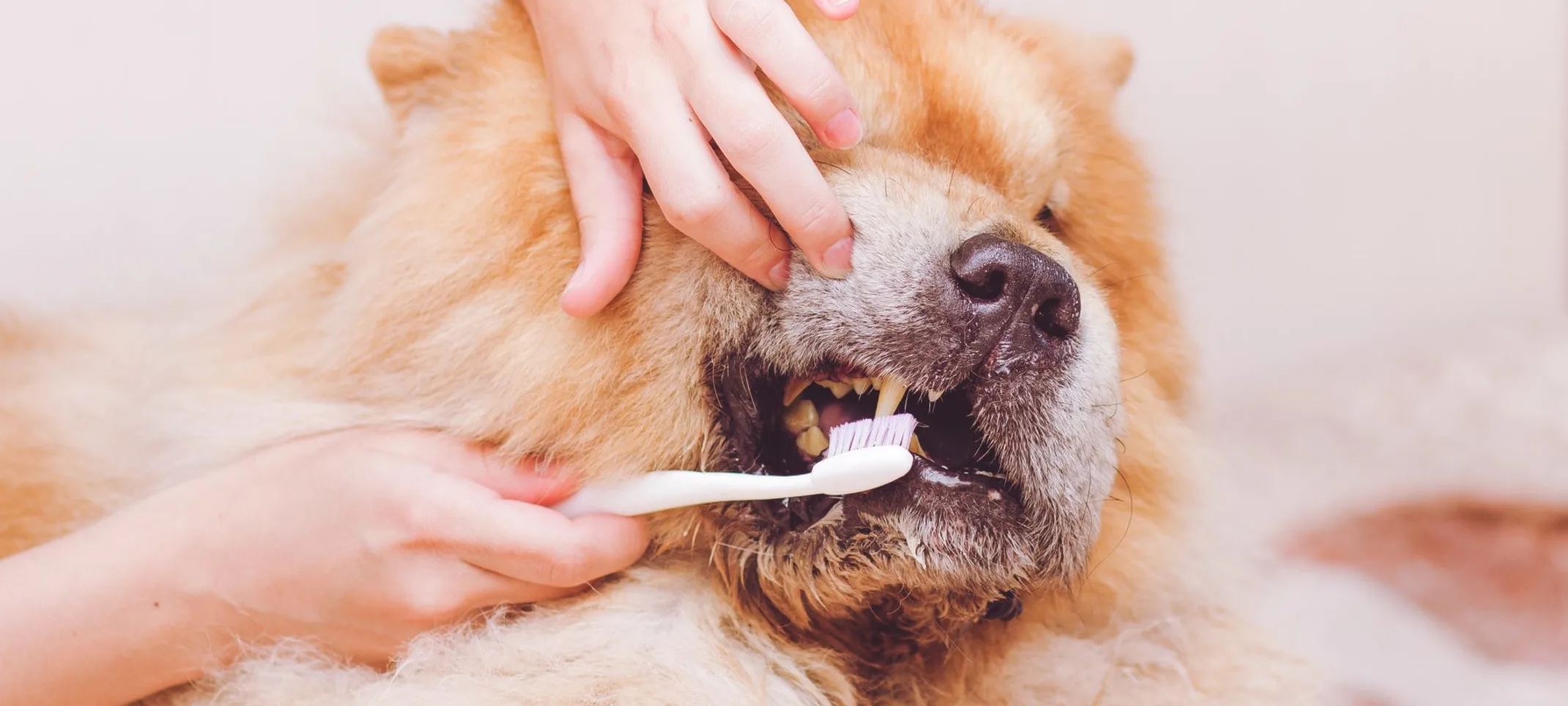Hinsdale Animal Hospital
Dentistry
Annual dental exams and cleanings are recommended to protect your pet from many health problems and help them maintain a healthy and clean mouth.

Overview
Studies show that 50% of all dogs and cats have some form of periodontal disease. That number jumps to 80% in pets that are 3 years of age or older. If left untreated, periodontal disease can cause infection, pain, and tooth loss over time. It can also lead to serious health problems like microscopic changes in the heart, liver, and kidneys. Because of this, we recommend an annual veterinary dental healthcare examination for all pets.
Why do pets need dental care?
Many health problems start in the mouth. Plaque, tartar, periodontal disease, and infected teeth serve as a source of inflammation and infection for the rest of the body.
Dental disease is one of the most common problems that we see in dogs and cats. It can cause drooling, reluctance to eat, swelling, bad breath, redness of the gums, loose teeth and tooth discoloration.
When should I seek dental care for my pet?
Dental issues and dental related diseases can easily be prevented by visiting our veterinarians regularly for dental examinations and cleanings. We take a comprehensive approach to dental care including dental health assessment, treatment, and prevention.
How does it work?
Teeth Exams, Cleaning and Polishing
Dog and cat dental cleanings are very similar to human dental cleanings, except that we are required to use anesthesia to properly and safely examine and clean the teeth. After the cleaning, our veterinarians perform a thorough oral exam and check for signs of disease like gum loss, root exposure, or pockets around the root.
Also similar to human dentistry, we do full mouth radiographs (x-rays) of your pet. This allows our veterinarians to be able to evaluate the roots of your pet's teeth as well as any disease or abnormalities that are located below the gum line and not visible on examination alone.
Tooth Extractions
We make every effort to save teeth that we feel have a chance to be successfully treated. In many circumstances, however, periodontal disease is so advanced that treatment without extraction is unsuccessful. We only extract teeth that in the doctor's opinion are beyond saving.
Minor Oral Surgery
Many teeth require oral surgery to safely remove each individual root. We have extensive training and experience to perform these procedures properly. Pain relief treatments are administered in clinic and provided for in-home aftercare.
Why have a dental cleaning on your pet?
85% of all pets have periodontal disease* by the time they are 3 years of age.
Dental disease can result in bad breath, painful chewing & tooth loss!
Bacteria under the gum can travel to the heart, kidneys & liver.
*PERIODONTAL DISEASE – It starts when bacteria combines with food particles to form plaque on the teeth. Within days, minerals in the saliva bond with the plaque to form tartar, a hard substance that adheres to the teeth. The bacteria work their way under the gums and cause gingivitis – an inflammation of the gums. Once under the gums, bacteria destroy the supporting tissue around the tooth, leading to tooth loss. This condition is known as periodontitis. Gingivitis and periodontitis make up the changes that are referred to as periodontal disease. The bacteria associated with periodontal disease can also travel into the bloodstream to infect the heart, kidneys, & liver.
What is included with a professional dental cleaning?
Removal of visible plaque & tartar
Elimination of plaque & tartar under the gum
Probing of dental sockets to assess dental disease
Polishing to smooth enamel scratches
Application of fluoride & dental sealer
Inspection of the lips, tongue, and entire mouth for growths, wounds, or other problems- We do not offer caps, crowns, or root canals.
Removal of fractured or infected teeth at an additional cost
Required Vaccinations:
Dogs – Rabies, Distemper, 6 mo Bordetella, Negative Fecal test, & Canine Infuenzas H3N8 & H3N2
Cats – Rabies, Distemper & Negative Fecal Test
